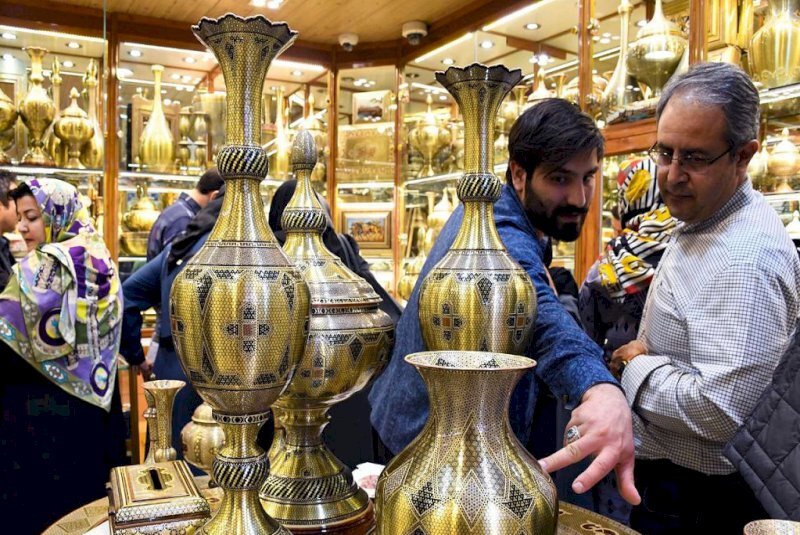Numerous handicraft markets opened during Noruz

TEHRAN –Iran became a major market for handicrafts during the New Year (Noruz) holidays, which ended on April 2, the deputy tourism minister has said.
Additionally, to the 900 official handicrafts markets throughout the country during Noruz holidays, there was a handicraft market at each city’s entrance, Maryam Jalali explained on Tuesday.
It is the largest and most important market of traditional arts and crafts in the world, which takes place during a limited period, like Noruz holidays, she added.
The value of Iran’s handicraft exports stood at $400 million during the first ten months of the current Iranian calendar year 1401 (Mar. 21, 2022 – Jan. 20, 2023), the deputy tourism minister said in February.
Compared with the same period a year earlier, the figure represents some 30 percent growth, Jalali said.
“The Islamic Republic exported $400 million worth of handicrafts during the first ten months of the current year, which shows a 30-percent increase year on year.”
Iran exported some $320 million worth of handicrafts during the past Iranian year (1400), the official stated.
The Islamic Republic has the most cities and towns registered with the World Crafts Council (WCC), followed by China with seven, Chile with four, and India with three designated ones.
The WCC-Asia-Pacific Region designated Shiraz, Malayer, Zanjan, and the village of Qasemabad in January 2020, bringing the total number of craft cities and towns in Iran from 10 to 14. Shiraz has been dubbed “the world city of [various] handicrafts.”
Malayer became a center for woodcarving and carved wood furniture on a global scale. The designation “world city of filigree” was given to Zanjan. The village of Qassemabad, which is renowned throughout the country for its traditional costumes, was also promoted to a major handicrafts center on an international scale.
Ceramics, porcelain, handwoven clothing, jewelry, and semi-precious stones are among Iranian handicrafts traditionally exported to Iraq, Afghanistan, Germany, the U.S., and the Persian Gulf coastal states, to name a few.
ABU/AM
